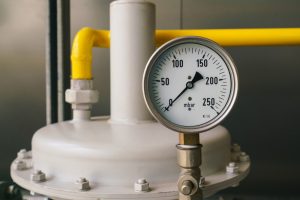
Your home likely has a water heater to warm up water when you need to shower, wash dishes, or do a load of laundry. More traditional water heaters have a tank that heats water as it fills up. Newer options include tankless water heaters that provide an endless supply of hot water without the need to wait for your tank to refill and reheat. Each type of water heater has pros and cons, but which is the best for your family’s needs?
If you’re considering tankless water heater installation in Gainesville, look no further. Our team can walk you through the installation process and let you know how long the project will take to complete. In the meantime, learn about the difference between tank and tankless water heaters.
Differences in Tank and Tankless Water Heaters
A traditional water heater has a tank. Homeowners can invest in a larger tank to get more hot water at a time. Tankless water heaters don’t limit the amount of hot water you have access to because they heat water on demand instead of storing it.
With a tankless water heater, turning on a hot water knob in your home signals the system to begin heating the heat exchangers that water will flow over. Within moments you have the hot water you need for your task. A water heater with a tank works by storing hot water around the clock, delivering it when you turn on a hot water knob.
Tankless Water Heater Benefits
The most obvious benefit of a tankless water heater is the endless supply of hot water. No more limiting the length of your showers so you don’t suddenly have a stream of cool water when the hot water tank empties. Other benefits include:
- Save on space – Many water heaters are in closets or garages. With a tankless water heater, you can win that space back in your home for storage or other uses.
- Save on energy – Tanks are constantly warming your water so it’s ready when you are. Instead of heating all day and all night, tankless systems use less energy by only heating water on demand.
- Save on water – You can also use less water with a tankless water heater for the same reasons you save on energy.
Cons of a Tankless Water Heater
Everything has a downside, and tankless water heaters are no exception to this rule. Downsides to having a tankless unit include:
- High demand – If you need a lot of hot water at one time, a tankless system may not be able to keep up. For example, you may not be able to run your dishwasher, run your washing machine, and take a shower all at once. If you do, the heat of the water may not be as high.
- Expense – Switching out your tank for a tankless unit can be pricey. While you do save on energy and water costs, it can take years to reach a break-even point based on how much you spend on the initial installation.
Contact Affinity Gas Services today to schedule an appointment with our professionals. We’re “The Gas Efficiency Experts.”
